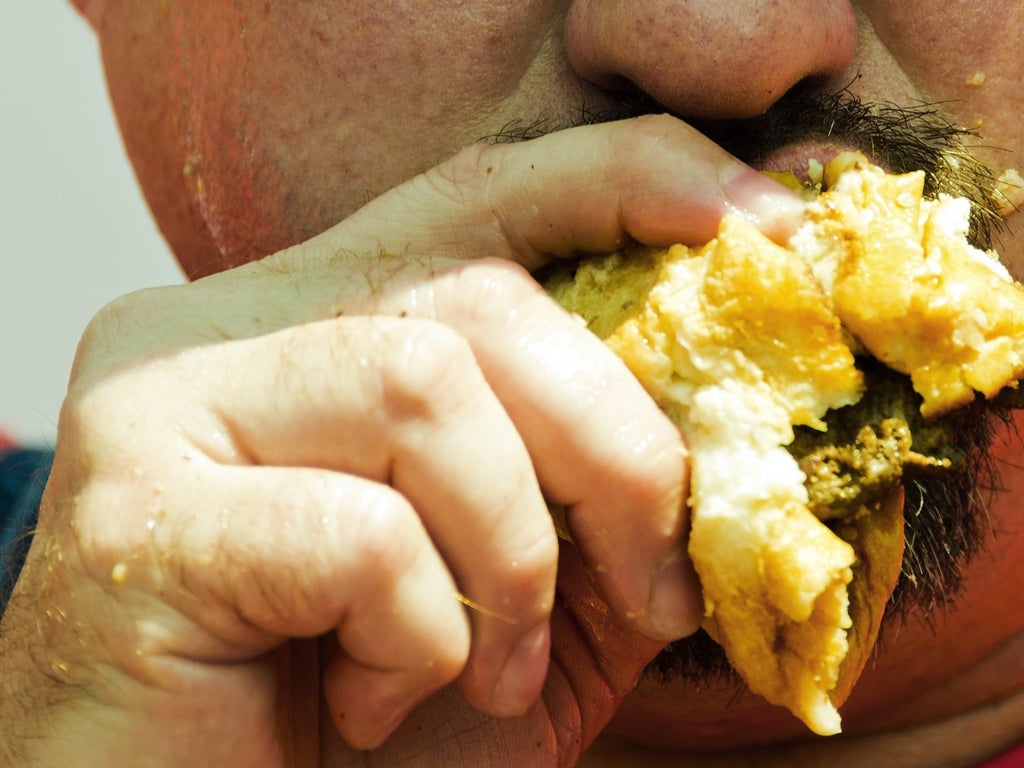Fatty food might cause brain damage, say scientists

Your support helps us to tell the story
From reproductive rights to climate change to Big Tech, The Independent is on the ground when the story is developing. Whether it's investigating the financials of Elon Musk's pro-Trump PAC or producing our latest documentary, 'The A Word', which shines a light on the American women fighting for reproductive rights, we know how important it is to parse out the facts from the messaging.
At such a critical moment in US history, we need reporters on the ground. Your donation allows us to keep sending journalists to speak to both sides of the story.
The Independent is trusted by Americans across the entire political spectrum. And unlike many other quality news outlets, we choose not to lock Americans out of our reporting and analysis with paywalls. We believe quality journalism should be available to everyone, paid for by those who can afford it.
Your support makes all the difference.Fatty foods may damage the region of the brain responsible for regulating a person’s appetite, which could account for why overweight people often find it difficult to stick to a diet, scientists said.
A study has found that a diet rich in saturated fats leads to the sort of damage to the brain’s hypothalamus that would normally be seen during ischaemic stroke, when the nerves are starved of oxygen.
The hypothalamus is a key region of the brain involved in controlling appetite so the findings suggests that saturated fats may be having a direct affect on the ability of the body to stick to a diet, said Lynda Williams of the Rowett Institute for Nutrition and Health at Aberdeen University.
“The hypothalamus is a small area at the base of the brain containing neurones that control the amount of food we eat and the energy we expend. However, this control breaks down in obesity - the system appears not to work - and we don’t really know why this happens,” Dr Williams said.
“To help answer the question we used a strain of mice that is susceptible to weight gain and put half of them on a high-fat diet and the other half on a normal low-fat diet,” Dr Williams said
“After just three days we saw changes to the proteins [of the hypothalamus] and after one week we saw changes to the genes,” she told the British Science Festival.
“Our experiment reveals a potential mechanism whereby a high-fat diet that is energy dense can damage or injure the hypothalamus. These changes may lead to the break down of the energy-balance centres in the brain, and so encourage weight gain and obesity,” she said.
“I’m almost sure it’s a direct effect of the fats on the brain. One of the first things that happens to the hypothalamus early on in high-fat feeding is that it become insensitive to [appetite hormones], so there is a sort of global loss of control of appetite,” she added.
Although the research was carried out on mice, Dr Williams believes the same processes take place in the human brain. “There is some evidence from the US where they did brain scans on obese people and found some indication of damage in the hypothalamus,” she said.
Join our commenting forum
Join thought-provoking conversations, follow other Independent readers and see their replies
Comments